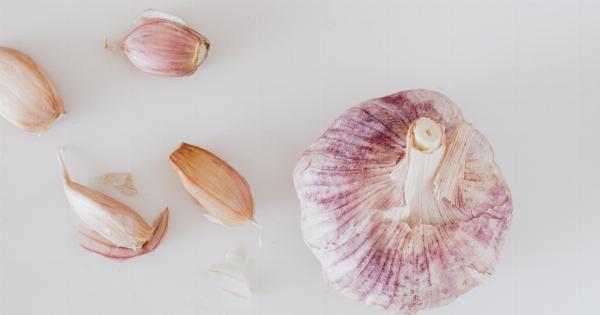The holiday season is a time for joy, celebration, and indulgence. It’s a time when family and friends come together to enjoy delicious feasts, but it’s also a time when many people experience uncomfortable bloating and digestive issues.
However, with a few simple tips and tricks, you can navigate the holiday season without the dreaded post-feast bloating. In this article, we will discuss some effective strategies to help you enjoy the holidays while keeping bloating at bay.
1. Watch Your Portion Sizes
One of the main causes of post-feast bloating is overeating. During the holidays, it’s easy to lose track of how much we are consuming, especially when faced with a table full of tempting dishes.
To avoid overeating and subsequent bloating, be mindful of your portion sizes. Fill your plate with small amounts of each dish, and resist the urge to go back for seconds or thirds. Eating slowly and savoring each bite can also help you feel satisfied without overindulging.
2. Choose Your Foods Wisely
Some foods are more likely to cause bloating than others. Carbonated beverages, greasy or fried foods, and foods high in sodium are common culprits. To avoid bloating, opt for lighter, less processed foods.
Include plenty of fruits, vegetables, lean proteins, and whole grains in your holiday meal. These foods are easier to digest and less likely to cause bloating. Additionally, try to minimize your intake of carbonated drinks and alcohol, as these can contribute to bloating and discomfort.
3. Stay Hydrated
Drinking enough water is essential for maintaining healthy digestion and preventing bloating. During the holiday season, when we may be consuming more rich and fatty foods than usual, it becomes even more important to stay hydrated.
Aim to drink at least eight glasses of water each day. You can also increase your water intake by consuming hydrating foods like watermelon, cucumbers, and oranges. Proper hydration will promote regular bowel movements and help prevent bloating.
4. Avoid Eating Too Quickly
Eating too quickly can lead to bloating as it can cause you to swallow air along with your food. Take your time to chew each bite thoroughly and savor the flavors. This will not only help prevent bloating but also allow you to enjoy your food more fully.
Engaging in conversation and putting your fork down between bites can also help slow down your eating pace.
5. Be Mindful of Food Combinations
Some food combinations are known to be harder to digest, leading to bloating and discomfort. For instance, combining starchy carbohydrates with proteins can result in slower digestion and increased bloating.
During the holiday season, it’s common to have meals that include both proteins and starches. To minimize bloating, try to separate these food groups. Have your protein-rich dishes with a variety of vegetables, and enjoy your starchy dishes separately.
6. Incorporate Digestive Aids
If you know you’re going to consume a larger meal than usual, it might be helpful to incorporate natural digestive aids into your routine. Ginger, peppermint, and fennel are known for their digestive benefits.
You can enjoy a cup of ginger tea or peppermint tea before or after your meal to aid in digestion and reduce bloating. Additionally, taking a digestive enzyme supplement can help support the breakdown of food and ease digestion.
7. Stay Active
Physical activity after a meal can aid in digestion and prevent bloating. Instead of immediately lounging on the couch after your holiday feast, take a walk around the neighborhood or engage in light exercise.
This will help stimulate your digestive system and prevent the accumulation of gas, reducing the chance of bloating. Even short bursts of activity, like stretching or doing household chores, can be beneficial.
8. Manage Stress Levels
Stress has a significant impact on our digestive system. During the holidays, stress levels can skyrocket due to planning, social obligations, and expectations. High-stress levels can lead to digestive issues and bloating.
To manage your stress levels, make self-care a priority. Practice relaxation techniques such as deep breathing, meditation, or yoga. Make time for activities that bring you joy and help you unwind. Prioritizing your mental well-being can have a positive impact on your digestive health.
9. Prioritize Rest and Sleep
Adequate rest and sleep are crucial for overall well-being, including healthy digestion. Lack of sleep can disrupt your body’s natural processes, including digestion.
Aim to get seven to eight hours of quality sleep each night during the holiday season. Establish a relaxing bedtime routine, create a conducive sleep environment, and try to stick to a consistent sleep schedule. Taking care of your rest and sleep needs will support your digestive system and reduce the likelihood of bloating.
10. Listen to Your Body
Ultimately, the key to avoiding post-feast bloating is listening to your body’s cues. Pay attention to how certain foods make you feel and make choices accordingly.
If you notice that certain foods consistently cause bloating or discomfort, consider limiting or avoiding them during your holiday meals. Each person’s digestive system is unique, so it’s essential to honor your body’s individual needs and preferences.

























